We are delighted to share with you our latest collection of recently published articles focusing on Nanomaterials for the environment, handpicked by Associate Editor Ranjit T. Koodali.
This collection features articles published in the journal in 2019 on nanomaterials for the environment. Environmental remediation of pollutants have received significant attention due to the issues related to their impact on the health and livelihood of humans. Broadly, removal of pollutants may involve adsorption (transfer from gas/aqueous phase to a solid adsorbent) or their degradation into simple, less complex, and harmless chemicals. Nanomaterials provide enhanced capabilities to remove pollutants because of their relatively high surface areas and small particle sizes.
The examples included in this study include heavy metals such as Pb(II), Cd(II) using biomaterial waste such as corn straw, removal of Fe(III) using coconut shell based materials, use of magnetic nanocomposites to simultaneously remove organics and inorganics, use of nanofibers to remove As(V), removal of fluoride and phosphate ions, fungus, and capture of greenhouse gas such as carbon dioxide. The collection also includes articles that employ photocatalytic and/or photoelectrocatalytic techniques to degrade refractory pollutants such as nitrobenzene, “spent wash” from sugar distilleries, organic dyes, drugs such as amoxicillin, Volatile Organic Compounds (VOC) such as methanol and CO2 photoreduction,
The themed collection reflects the myriad number of innovative approaches developed by researchers to remove pollutants using novel, and often using cost-effective approaches for both the synthesis and subsequent removal of pollutants.
As the world’s largest gold open access chemistry journal, all publications in RSC Advances are free to access. We hope you enjoy reading these articles.
We invite you to submit your research to this collection and give your work the global visibility it deserves.
Featured articles:
Functionalized biochar-supported magnetic MnFe2O4 nanocomposite for the removal of Pb(ii) and Cd(ii)
Lianke Zhang, Jinyue Guo, Xuemin Huang, Weida Wang, Peng Sun, Yumei Li and Jianhong Han
RSC Adv., 2019,9, 365-376. DOI: 10.1039/C8RA09061K
ZnO decorated Sn3O4 nanosheet nano-heterostructure: a stable photocatalyst for water splitting and dye degradation under natural sunlight
Sagar D. Balgude, Yogesh A. Sethi, Bharat B. Kale, Dinesh P. Amalnerkar and Parag V. Adhyapak
RSC Adv., 2019,9, 10289-10296. DOI: 10.1039/C9RA00788A
Green-synthesized copper nanoparticles as a potential antifungal against plant pathogens
Nicolaza Pariona, Arturo I. Mtz-Enriquez, D. Sánchez-Rangel, Gloria Carrión, F. Paraguay-Delgado and Greta Rosas-Saito
RSC Adv., 2019,9, 18835-18843. DOI: 10.1039/C9RA03110C
Meet the Editor
 Dr. Ranjit T. Koodali is an Associate Editor for RSC Advances and serves as the Associate Provost for Research and Graduate Education at Western Kentucky University. Dr. Koodali has published over 125 peer-reviewed articles in leading scientific journals. He is a co-Director of a National Science Foundation Research Traineeship (NRT) grant that aims to provide a new paradigm and scalable model for graduate education.
Dr. Ranjit T. Koodali is an Associate Editor for RSC Advances and serves as the Associate Provost for Research and Graduate Education at Western Kentucky University. Dr. Koodali has published over 125 peer-reviewed articles in leading scientific journals. He is a co-Director of a National Science Foundation Research Traineeship (NRT) grant that aims to provide a new paradigm and scalable model for graduate education.

Submit to RSC Advances today! Check out our author guidelines for information on our article types or find out more about the advantages of publishing in a Royal Society of Chemistry journal.
Keep up to date with our latest HOT articles, Reviews, Collections & more by following us on Twitter. You can also keep informed by signing up to our E-Alerts.











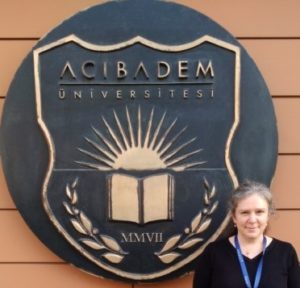
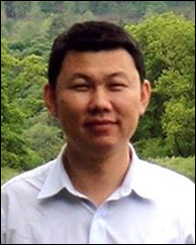

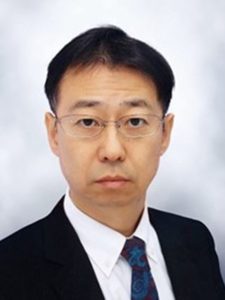






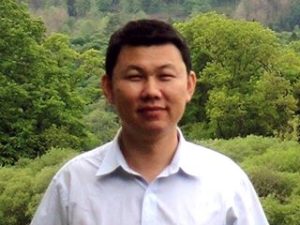
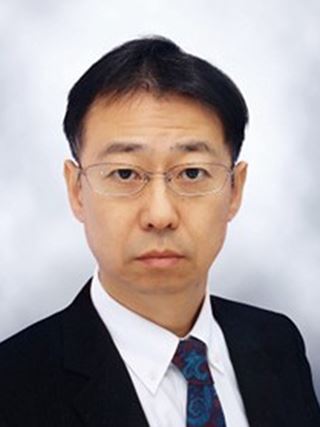 Norio Shibata has been a Professor at the Nagoya Institute of Technology since 2008. He received a Ph.D. (1993) in pharmaceutical sciences from Osaka University under the direction of Professor Yasuyuki Kita. He worked at Dyson Perrins Laboratory (Professor Sir Jack. E. Baldwin), Oxford University (JSPS fellow, 1994−1996), Sagami Chemical Research Institute (Dr. Shiro Terashima, 1996), after which he was a lecturer at Toyama Medical & Pharmaceutical University (1997−2003), and an associate professor at the Nagoya Institute of Technology (2003−2008). He also acted as a visiting professor at the University of Rouen (2008, 2012) and Zhejiang Normal University (2017−), an academic visitor at the University of Oxford (2017, 2018) and University of Valencia (2017, 2019), a senior technical consultant at the National Engineering Technology Center of Fluoro Materials, Juhua Group Corporation (2017−).
Norio Shibata has been a Professor at the Nagoya Institute of Technology since 2008. He received a Ph.D. (1993) in pharmaceutical sciences from Osaka University under the direction of Professor Yasuyuki Kita. He worked at Dyson Perrins Laboratory (Professor Sir Jack. E. Baldwin), Oxford University (JSPS fellow, 1994−1996), Sagami Chemical Research Institute (Dr. Shiro Terashima, 1996), after which he was a lecturer at Toyama Medical & Pharmaceutical University (1997−2003), and an associate professor at the Nagoya Institute of Technology (2003−2008). He also acted as a visiting professor at the University of Rouen (2008, 2012) and Zhejiang Normal University (2017−), an academic visitor at the University of Oxford (2017, 2018) and University of Valencia (2017, 2019), a senior technical consultant at the National Engineering Technology Center of Fluoro Materials, Juhua Group Corporation (2017−). Employed for close to 34 years at the University of Campinas (UNICAMP) in São Paulo, Brazil, Professor Meireles completed her PhD in Chemical Engineering at Iowa State University. Starting as an Assistant Professor in the School of Food Engineering in 1983, she has since become a Professor and has supervised 50 PhD dissertations, 30 MSc theses and approximately 72 undergraduate research projects. She has also coordinated scientific exchange projects between UNICAMP and European universities in France, Germany, Holland, and Spain. Angela has served as a Head of Department, as Associate Dean for Undergraduate Studies of Food Engineering and as Associated Director at the Chemical, Biological, and Agricultural Pluridisciplinary Research Center.
Employed for close to 34 years at the University of Campinas (UNICAMP) in São Paulo, Brazil, Professor Meireles completed her PhD in Chemical Engineering at Iowa State University. Starting as an Assistant Professor in the School of Food Engineering in 1983, she has since become a Professor and has supervised 50 PhD dissertations, 30 MSc theses and approximately 72 undergraduate research projects. She has also coordinated scientific exchange projects between UNICAMP and European universities in France, Germany, Holland, and Spain. Angela has served as a Head of Department, as Associate Dean for Undergraduate Studies of Food Engineering and as Associated Director at the Chemical, Biological, and Agricultural Pluridisciplinary Research Center.







